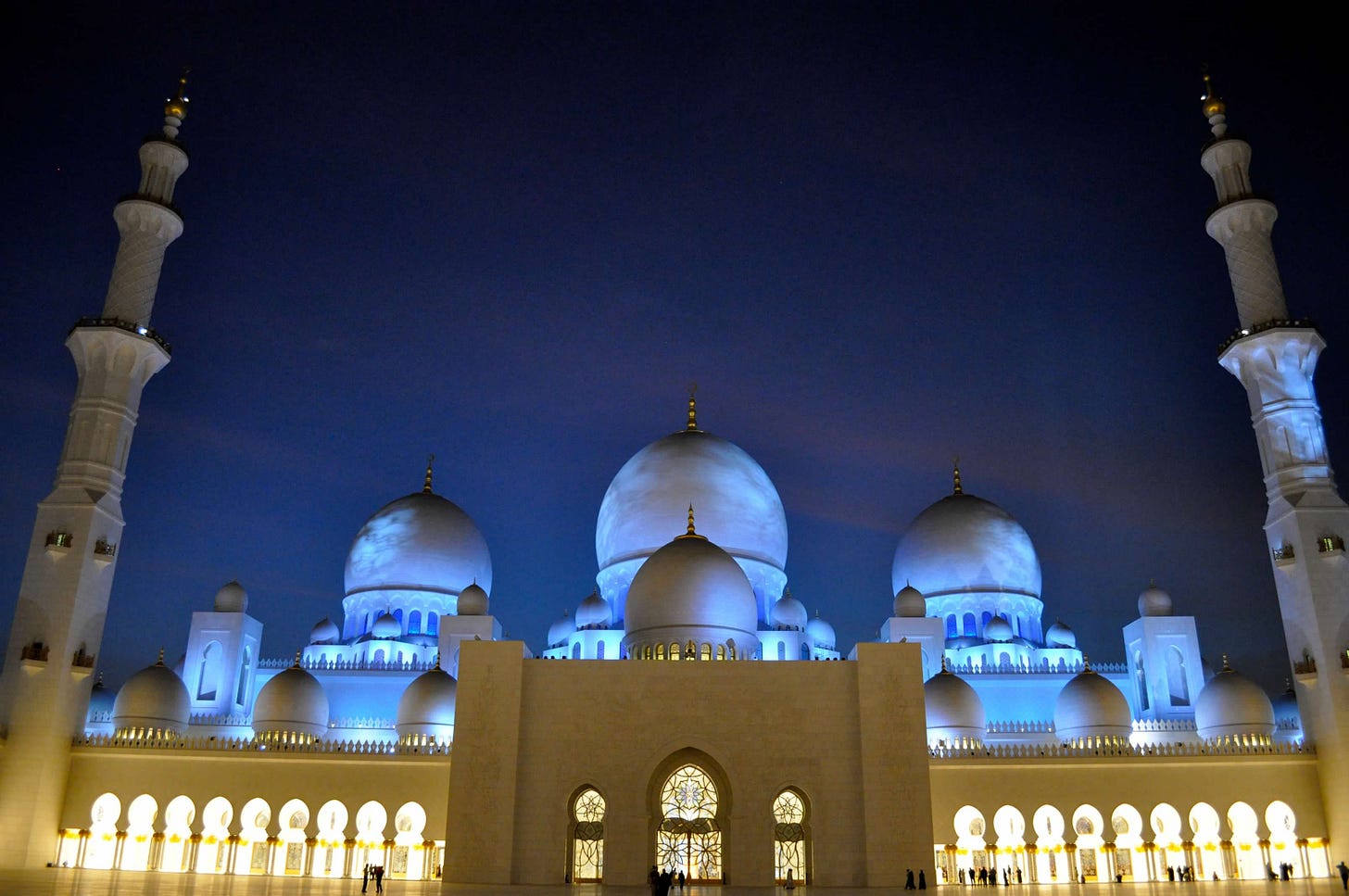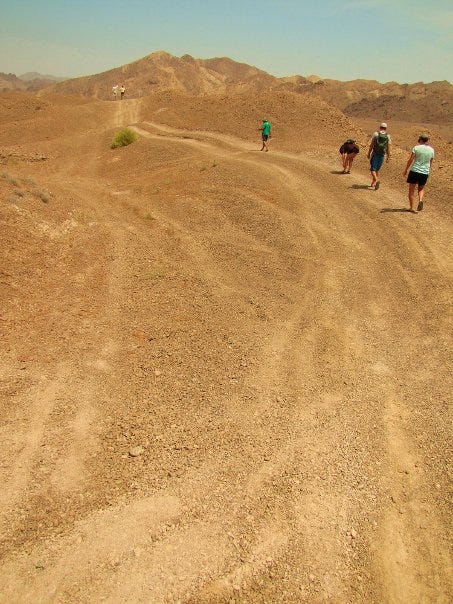We hope this finds you rested after the long weekend. Emily and I are both amazed that this Saturday will be twenty years since September 11, 2001. We are joined today by repeat-contributor, Beth Rasmussen, in honor of this important anniversary.
“I am not the same, having seen the moon shine on the other side of the world.”
Mary Anne Radmacher
Where were you when you first saw the towers, their skeletons exposed and blanketed in soft grey smoke? Or the tangled twists of metal scattered across the field in Pennsylvania?
I saw the replay repeatedly of the second plane crashing, the enormous ball of fire bursting out of office windows and reducing a landmark and workplace to wreckage.
I remember the people who rushed into the buildings to help, those who cast themselves from the fire, and those whose families were forever changed when the buildings fell, carrying away their loved ones in a casket of steel and concrete. I remember hearing the recordings of final goodbyes.
Twenty years doesn’t change the heartbreak of that moment; it is as tragic today as it was then. As Americans, grief and lament are uncomfortable, but September 11 is a time for such.
I was eighteen when my mother called, telling me to put aside my packing for my freshman year in college and turn on the television. I tried to piece the images and commentary together, unable to believe that such an act of violence could occur within my own country.
In the weeks following, US troops invaded a Taliban-controlled Afghanistan to hunt for Osama bin Laden, the leader and founder of al Qaeda. Western news flooded us with images of turbaned men, with their long beards, and rifles raised in threat, and women peering from burkas. Thus began the War on Terror, which dominated the political sphere for many years. When I listened to politicians, it seemed like the American Way was being hunted by those who hated progress.
Years later, in 2009, my husband and I decided to search for teaching jobs overseas. “I’ll go anywhere,” I said, “except the Middle East.” Because I was no dummy; we’d all seen the violence of extremists.
But then we were offered jobs in Abu Dhabi, United Arab Emirates. Adventure was calling me to a place shrouded in mystery. Everyone agreed; the money would be excellent. There was something daring in doing the last thing that I’d expected. I thought I was being open-minded.

We arrived in the stifling heat of August, and in the middle of Ramadan. One evening shortly after arriving, we went to the Sheikh Zayed Grand Mosque for Iftar Dinner, the meal that ends the daily Ramadan fast.
As a woman, I was ushered into the women’s tent. I sat quietly, watching in trepidation, as women covered head to toe in inky black rounded the corner to sit across from me. As soon as these ladies were with women only, they pulled off their long black veils, and I was surprised at what I saw beneath: mothers, daughters, grandmothers, aunties.
The women smiled, they laughed, they scolded naughty children who wanted to run or lie on their backs instead of sitting at the table. They held little hands, wiped noses, nodded greetings.
Were these the people I was afraid of? I suddenly felt foolish; but I also felt something in me change. So many stereotypes had been stuck in my mind, oozing into prejudicial viewpoints; and I’d let them stay there, to the detriment of others and to myself. I realized I wanted to hear these women’s stories, to see them as they wanted to be seen, a visage untainted by the events of September 11 and its effect on the American psyche.
After that meal, I began to see the beauty of Arab and Muslim culture, the very thing I had learned to fear. Muslims hold a reverence for Allah, a sense of holiness and sacredness, in their practices of worship. Family bonds are tighter and more meaningful than many I’d seen in the United States; children are cherished in ways for which I can’t find accurate language to describe.
During our time in the Middle East, we watched Arabs lead movements, a wave of anti-government protests beginning in Tunisia, sweeping through Libya, Egypt, Yemen, Syria, and more. Their voices were strong and united, yet their cries for elections and justice were largely ignored by the international community. The more I recognized and cherished their culture, the more I resented the ways I saw Muslims denigrated through the media tropes of crazed fundamentalists and subservient women. Those characteristics are neither widespread nor unique to any culture, but films and television series capitalized on popular stereotypes of those considered the enemy.
I taught at an American school where 73 nationalities of students were represented, and about 30% were locals, that is, students native to the United Arab Emirates. On National Day, our school had a women’s-only assembly where a variety of local students performed dances for a fully female audience. I was surprised how much the dances celebrated their femininity, their form, their ability to shake that booty! As a western woman socially trained by the evangelical church to avoid the male gaze, hearing the women cheer for one another with wild joy felt freeing.

My eldest daughter, Geneva, was born in Abu Dhabi. As a tomboy myself, I rarely dressed her in pink. I wanted to imbue her, from the beginning, with a ferocity, a strength rarely assigned to those in ruffles. Also, I simply don’t like pink ruffles, and in Abu Dhabi, every piece of girls’ clothing for babies was bright pink. But you know who never once mistook her for a boy? Arab men.
They beamed down at her, told us she was beautiful, and poured their blessings in a babble of baby talk, and the most important word: “Mashallah, mashallah!” meaning, What God has willed has happened. It is a word of joy and praise. Their eyes held so much tender care and nurture for her little soul.
I thought I was wise, but the more I traveled in the Middle East, the more I realized I understood very little about the kaleidoscope of expressions within just the corners of the world I came in contact with, much less the world as a whole, with its untold customs, pathways to joy or sorrow, gender roles, or artistic expression. The people of our world are a profound mystery.
I learned something about the world and myself: There is space within me for things that seem conflicting. I can hate the violence of 9/11, and grieve for the families and their loss, to cry out at the agony of daughters in Afghanistan today, reclaimed by the Taliban. And I can love many elements of Muslim culture and space. To enter it and share it for a while was one of the great gifts of my life.
I also must make space to actively undo my wrong assumptions, to look at my own culture and see how it can be just as harmful as someone else’s when it becomes extremist in its individualism and self-righteousness.
Scientists suspect that the universe is actively unfolding, constantly growing each moment. I think souls function like that too, growing more expansive each time people learn to center others in their personal narrative.
إذا تم العقل نقص الكلام
“The smarter you are, the less you speak.”
Arabic Proverb
5 Things I Learned While in Abu Dhabi
The desert is full of color and life under the surface. Spaces that are seemingly dry and empty are waiting to spring into life.
Separating genders for schooling had untold benefits for girls, who engaged at much higher rates in gender-segregated classes than in my blended classes in the US. In this photo, Emirati boys perform a traditional dance for National Day. While the women’s dance was far more eye-opening, it is forbidden to photograph local women without express permission.
It was safe for me to walk alone at any time of night, but I was under no illusions of why; my whiteness kept me safe in a city that was 70% male. Browner women did not have the same luxury. Diversity is beautiful, and it requires that we work for the safety and human dignity of all.
The sense of honoring the sacred as a community. As Americans, our individualism is usually deemed of higher worth than either the sacred or the community at large.
Water is sacred. Unfortunately, access to it is not considered a human right, and sources of wealth already control water access in many parts of the world. As a world community, we have disregarded both ocean and freshwater sources of life. Accountability will come too late for many.
In gratitude,
Beth Rasmussen
P.S. In what ways have your assumptions changed or been challenged since September 11, 2001? Share with us below.











Finally got around to reading this, was a great pleasure. You have such a way with words, Beth. You've got me feeling nostalgic and grateful for the opportunity to live in such a rich and beautiful culture, the chance to be in relationship with so many lovely Muslim women and girls... Sigh, might just pull out my photo albums today ;) xo